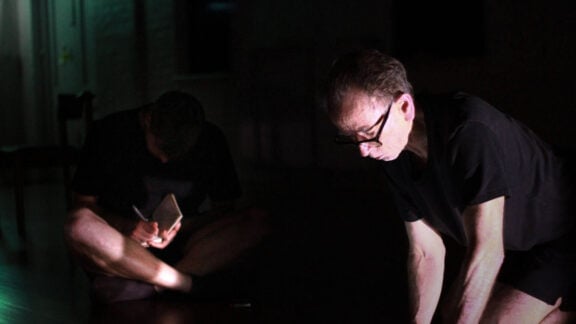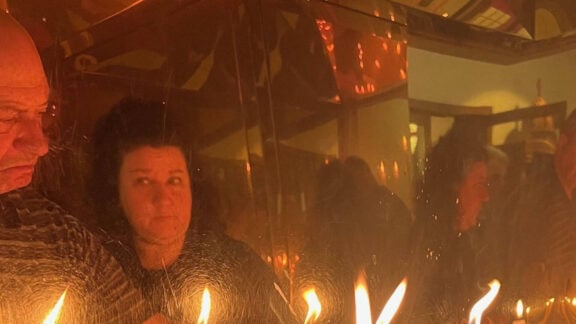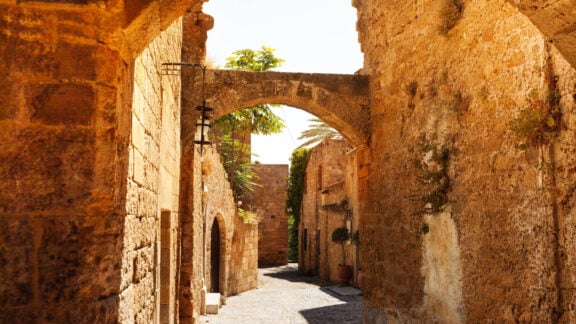A missile strike on the central Israeli city of Rishon Lezion, just eight kilometres south of Tel Aviv, has left two people dead and dozens injured. The strike came as part of a large-scale Iranian missile offensive, launched in response to Israeli attacks on Iran’s nuclear infrastructure that reportedly killed senior military figures.
The rapid escalation between the two regional powers has alarmed global leaders, with fears mounting that the conflict could spiral beyond their borders. Israel’s unprecedented assault on Iranian targets was aimed at crippling what it sees as Tehran’s advancing nuclear ambitions. In turn, Iran has struck back, marking a dangerous new phase in a long-simmering hostility now breaking into open warfare.
.

Air raid sirens sounded in Tel Aviv and Jerusalem before dawn on Saturday, sending residents rushing into shelters.
The military said its air defence systems were operating, seeking to intercept Iranian missiles.
“In the last hour, dozens of missiles have been launched at the state of Israel from Iran, some of which were intercepted,” the Israeli military said.
It said rescue teams were operating at a number of locations across the country where fallen projectiles were reported, without commenting on casualties.
“In the last hour, dozens of missiles have been launched at the state of Israel from Iran, some of which were intercepted,” the Israeli military
Several explosions were heard in the Iranian capital Tehran, the semi-official Tasnim news agency reported.
Israeli media said a suspected missile came down in Tel Aviv, and a Reuters witness heard a loud boom in Jerusalem.
It was unclear whether Iranian strikes or Israeli defensive measures were behind the activity.
Iran’s Fars news agency said Tehran launched a third wave of air strikes on Saturday after two salvos on Friday night.
Those were in response to Israel’s attacks on Iran early on Friday against commanders, nuclear scientists, military targets and nuclear sites.
Israel’s ambulance service said 34 people were injured on Friday night in the Tel Aviv area, most with minor injuries. Police later said one person had died.
The US military helped shoot down Iranian missiles headed for Israel on Friday, two US officials said.
Israel’s military said Iran fired fewer than 100 missiles on Friday and that most were intercepted or fell short.
Several buildings in and around Tel Aviv were hit.
The Israeli strikes on Iran throughout the day and the Iranian retaliation raised fears of a broader regional conflagration, although Iran’s allies Hamas in Gaza and Hezbollah in Lebanon have been decimated by Israel.
Iran’s state news agency IRNA said Tehran launched hundreds of ballistic missiles at Israel after Israel blasted Iran’s huge Natanz underground nuclear site and killed its top military commanders.
Iran says its nuclear programme is only for peaceful purposes.
Prime Minister Benjamin Netanyahu:
To the proud people of Iran,
We are in the midst of one of the greatest military operations in history, Operation Rising Lion.
The Islamic regime, which has oppressed you for almost 50 years threatens to destroy our country, the State of Israel.
Israeli officials said it may be some time before the extent of damage at Natanz was clear.
Western countries have long accused Iran of refining uranium there to levels suitable for a bomb rather than civilian use.
The above-ground pilot enrichment plant at Natanz has been destroyed, UN nuclear watchdog chief Rafael Grossi told the Security Council on Friday.
He said the UN was still gathering information about Israeli attacks on two other facilities, the Fordow fuel enrichment plant and at Isfahan.
Iran’s Supreme Leader Ayatollah Ali Khamenei accused Israel of starting a war.

A senior Iranian official said nowhere in Israel would be safe and revenge would be painful.
Iranian UN envoy Amir Saeid Iravani said 78 people, including senior military officials, were killed in Israel’s strikes on Iran and more than 320 people were wounded, most of them civilians.
He accused the US of being complicit in the attacks and said it shared full responsibility for the consequences.
Israel’s UN envoy Danny Danon said intelligence had confirmed that within days Iran would have produced enough fissile material for multiple bombs.
He called Israel’s operation “an act of national preservation”.
Iran has long insisted its nuclear programme is for civilian purposes only.
The UN nuclear watchdog concluded this week that it was in violation of its obligations under the global non-proliferation treaty.
US President Donald Trump said it was not too late for Tehran to halt the Israeli bombing campaign by reaching a deal on its nuclear program.
Tehran had been engaged in talks with the Trump administration on a deal to curb its nuclear program to replace one that Trump abandoned in 2018.
Tehran rejected the last US offer.









